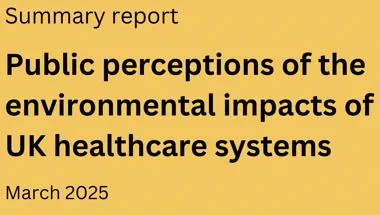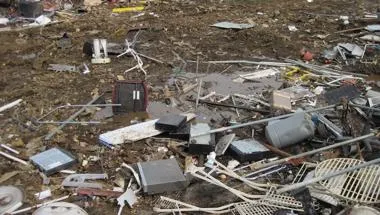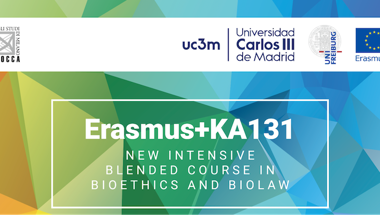SHADE sits at the intersection of Sustainability, Health, AI, Digital technologies and the Environment.
SHADE is guided by a fundamental question: How should the balance between AI/digital enabled health and planetary health be struck in different areas of the world, and what should be the guiding principles?
To address this SHADE promotes interdisciplinary enquiry to understand and make visible sustainable practices situated in specific geographical and societal contexts. Undertaking both normative and solutions based research, SHADE draws on empirical, epistemic and ethical perspectives from philosophy, law, sociology and ethics, as well as from more quantitative approaches such as life cycle sustainability assessment. See more about SHADE's research here.
SHADE was formed in September 2023 and has a global membership that includes academics as well as societal actors. Its founding members are already working on relevant projects listed under the Projects tab below.
Sign up for the SHADE newsletter and see previous newsletters
People
Projects

Public perceptions of the UK NHS’s environmental impact
In the UK, the health sector is responsible for about 6% of the national carbon footprint and it also has other environmental impacts, such as producing a lot of liquid and solid waste. In this project, we conducted twelve focus groups with 82 members of the UK public to explore how participants understood and thought about the environmental impacts of the UK health system (NHS). This included if/how these impacts should be addressed.

Green Digital Health Tool
Codesigning a tool to assess the environmental sustainability of digital health initiatives globally. This project is a follow on to the PARIS DE project (see below). It is funded through the ESRC Impact Acceleration Account. SHADE members involved in this project are:

Virtual Care Co-design
Codesigning sustainability frameworks in virtual care in Canada – going beyond the carbon centric equivalence models. This is part of PARIS-DE, an EPSRC funded project. SHADE members involved in this project are:

Research Ethics frameworks
Research ethics frameworks - what is considered and what isn't? Knowledge, beliefs and attitudes of communities conducting research around digital technologies and health in Senegal, Kenya, Egypt and the UK. This project is funded by SHADE and Welcome. SHADE members involved in this project are:

E-waste
E-waste: A localised study in India looking at who is dealing with e-waste, how they might be harmed and what protection is in place. This project is funded by SHADE. SHADE members involved in this project are:

Developing a Programme around Ethical and Legal Challenges
Joint development, with European partners, of a Blended Intensive Programme (BIP) in Bioethics and Biolaw. The topics cover digitalisation of society (principally medicine and justice), sustainability and the Anthropocene. This project is funded by ERASMUS+. SHADE members involved in this project are:
Additional Projects
Publications
Peer Reviewed Papers from SHADE members
Samuel G and Lucivero F. Digital Sustainability. (2025). In The Companion to Digital Ethics (ed. Luciano Floridi and Mariarosaria Taddeo). Wiley.
Samuel, G. Responsibility for the Environmental Impact of Data-Intensive Research: An Exploration of UK Health Researchers. Sci Eng Ethics 30, 33 (2024). https://doi.org/10.1007/s11948-024-00495-z
Souter, N. E., Bhagwat, N., Racey, C., Wilkinson, R., Duncan, N. W., Samuel, G., … Rae, C. (2024, January 19). Measuring and reducing the carbon footprint of fMRI preprocessing in fMRIPrep. https://doi.org/10.31219/osf.io/wmzcq. (preprint)
Samuel, G.; Lucivero, F.; Knowles, B.; Wright, K. Carbon Accounting in the Digital Industry: The Need to Move towards Decision Making in Uncertainty. Sustainability 2024, 16, 2017. https://doi.org/10.3390/su16052017.
Tarpani, R. R. Z., & Gallego-Schmid, A. (2024). Environmental impacts of a digital health and well-being service in elderly living schemes. Cleaner Environmental Systems, 12, 100161.
Souter, N.E., Lannelongue, L., Samuel, G., Racey, C., Colling, L.J., Bhagwat, N., Selvan, R. and Rae, C.L., 2023. Ten recommendations for reducing the carbon footprint of research computing in human neuroimaging. Imaging Neuroscience, 1, pp.1-15.
Pattnaik, A., Vaz, M. (2023) Urgent need for planetary health education for healthcare professionals and students in India. Indian Journal of Medical Ethics, [S.l.], v. 0, n. 0, p. , Dec. 2023. ISSN 0975-5691. doi: https://doi.org/10.20529/IJME.2023.075.
Samuel, G. (2023) UK health researchers’ considerations of the environmental impacts of their data-intensive practices and its relevance to health inequities. BMC Med Ethics 24, 90 (2023). https://doi.org/10.1186/s12910-023-00973-2
Wright, D., Igel, C., Samuel, G. and Selvan, R. (2023) Efficiency is Not Enough: A Critical Perspective of Environmentally Sustainable AI. https://doi.org/10.48550/arXiv.2309.02065.
Widdicks K, Lucivero F, Samuel G, Croxatto LS, Smith MT, Holter CT, Berners-Lee M, Blair GS, Jirotka M, Knowles B, Sorrell S, Rivera MB, Cook C, Coroamă VC, Foxon TJ, Hardy J, Hilty LM, Hinterholzer S, Penzenstadler B. (2023). Systems thinking and efficiency under emissions constraints: Addressing rebound effects in digital innovation and policy. Patterns (N Y). Feb 10;4(2):100679. doi: 10.1016/j.patter.2023.100679. PMID: 36873905; PMCID: PMC9982294.
Samuel G, Lucassen A. (2022). The environmental impact of data-driven precision medicine initiatives. Precision medicine. 1(E1). doi:10.1017/pcm.2022.1. Video abstract: https://www.youtube.com/watch?v=WD4ehcEwSKk
Samuel G., Richie C. (2023) Reimagining research ethics to include environmental sustainability: a principled approach, including a case study of data-driven health research Journal of Medical Ethics 2023;49:428-433
Samuel G, Lucassen A. (2022). The environmental sustainability of data-driven health research: a scoping review. Digital Health. https://doi.org/10.1177/20552076221111297
Samuel G, Hardcastle F, Lucassen A. (2022). Environmental sustainability and biobanking: a pilot study of the field. New Genetics and Society. 41:2, 157-175, DOI: 10.1080/14636778.2022.2093707
Samuel G, Lucivero F, Somavilla, L. (2022). The environmental sustainability of digital technologies: stakeholder practices and perspectives. Sustainability. https://www.mdpi.com/2071-1050/14/7/3791
Samuel G, Lucivero F, Lucassen A. (2022). Sustainable biobanks: a case study for a green global bioethics. Global Bioethics. 33(1): 50–64. https://www.ncbi.nlm.nih.gov/pmc/articles/PMC8881066/
Focus Group on Environmental Efficiency for Artificial Intelligence and other Emerging Technologies (2022). Driving AI-IoT design towards the UN sustainable development goals (SDGs), ITU Publications, FG-AI4EE D.WG1-08, https://www.itu.int/dms_pub/itu-t/opb/fg/T-FG-AI4EE-2022-D.WG1.08-PDF-E.pdf.
Salardi S. (2022) From Sustainable Development to the Rights of Nature: Mutually Integrated Legal Ways to Protect Environment. notizie di POLITEIA, XXXVIII, 145, 2022. ISSN 1128-2401 pp. 25-37.
Salardi, S. (2021). Nature through the lens of the law: from sustainable development to legal personhood. A philosophical-legal sketch. IL DIRITTO DELL'ECONOMIA, 104(1), 75-89. Translated full text available here: https://www.ildirittodelleconomia.it/wp-content/uploads/2021/04/03Salardi.pdf
Lucivero, F., Samuel, G., Blair, G., Darby, S.J., Fawcett, T., Hazas, M., Ten Holter, C., Jirotka, M., Parker, M., Webb, H. and Yuan, H. 2020. Data-driven unsustainability? An interdisciplinary perspective on governing the environmental impacts of a data-driven society. SSRN. doi: 10.2139/ssrn.3631331.
Lucivero, F., 2020. Big data, big waste? A reflection on the environmental sustainability of big data initiatives. Science and engineering ethics, 26(2), pp.1009-1030.
Activities

The ecological and carbon footprint of emerging technologies on human health
This workshop, organised by Dr Silvia Salardi, took place on March 19th at the University of Milano-Bicocca in Milan. SHADE members presented in the first panel of the workshop.

Global Digital Health Forum 2024
In December 2024, Dr Gabrielle Samuel, together with many members of the Digital Health and Climate group, presented at the Global Digital Health Forum 2024 in Nairobi, Kenya. Dr Samuel is a co-chair of the Digital Health and Climate group and SHADE works closely with this group. An overview of digital health and the climate crisis, prepared by the Digital Health and Climate group, can be accessed via the link below. The overview also contains information about the group and how to join.

Test Your Digital Sustainability Exhibit
In July 2024, SHADE's directors ran an exhibit at the British Academy Summer Showcase. This highlighted the environmental impacts of digital technologies, and their associated social justice issues. Through a series of games and workshops, it invited visitors to explore questions around how net zero can be reached, who should be responsible for reducing digital technologies' environmental harms and addressing their social justice issues, and whether moving to a more digital society necessarily means a 'better' society for our planet.

SHADE Meeting
In June 2024, SHADE members came together for a two-day meeting to present and discuss the different initiatives happening under the SHADE umbrella. This was a fantastic opportunity for SHADE members to gather in person, and was in fact the first in-person meeting since SHADE’s launch. The opportunity for our members to forge closer links and friendships was enthusiastically embraced. Significant links between SHADE members and the Digital Health and Climate Group (see 'Global Digital Health Forum' Activity) were also initiated.

SHADE blog
In April 2023, SHADE's coordinator wrote about the need to fill the SHADE space.

Research Sustainability Tools Workshop
In February 2024, SHADE's directors were invited to contribute to a Wellcome Trust workshop to explore how funding programmes could help the transition to sustainable research. The workshop came about as a result of the Wellcome commissioned report below, which itself drew on research from Dr Gabrielle Samuel. The report highlighted that tools to estimate the environmental impact of research were a crucial area that could benefit from support.

Global Digital Health Forum
In December 2023, Dr Gabrielle Samuel presented on 'Digital Health and the Climate Crisis' at the Global Digital Health Forum hosted by the Global Digital Health Network in Washington. The presentation discussed the implications of the climate crisis for digital health technology and measures to mitigate the environmental harm of digital health.
News
New research hub launched to explore the intersection of digital technologies, health and the environment
The SHADE research hub has been launched by the School of Global Affairs in partnership with the Ethox Centre in the Nuffield Department of Population Health,...

Project to explore the environmental sustainability of AI-enabled digital health
A new research project led by Dr Gabrielle Samuel, Lecturer in Environmental Justice and Health at King’s, will examine the sustainability of digital...

Resources
Explore our compilation of resources from groups and individuals working in the SHADE space. These are organised into the following:
- Peer reviewed papers. Some peer reviewed papers are not health specific, and tagged as such. Health specific papers are tagged as being (primarily) concerned with climate mitigation, climate adaptation or data analysis for learning.
- Tools, tagged as health specific or general.
- General resources, tagged as essays, blogs, reports, databases, videos, podcasts etc.
More can be found in our newsletters - sign up for these and see our published newsletters here.
Please tell us what you like, what you don’t like and what you think is missing at shade@kcl.ac.uk.
People
Projects

Public perceptions of the UK NHS’s environmental impact
In the UK, the health sector is responsible for about 6% of the national carbon footprint and it also has other environmental impacts, such as producing a lot of liquid and solid waste. In this project, we conducted twelve focus groups with 82 members of the UK public to explore how participants understood and thought about the environmental impacts of the UK health system (NHS). This included if/how these impacts should be addressed.

Green Digital Health Tool
Codesigning a tool to assess the environmental sustainability of digital health initiatives globally. This project is a follow on to the PARIS DE project (see below). It is funded through the ESRC Impact Acceleration Account. SHADE members involved in this project are:

Virtual Care Co-design
Codesigning sustainability frameworks in virtual care in Canada – going beyond the carbon centric equivalence models. This is part of PARIS-DE, an EPSRC funded project. SHADE members involved in this project are:

Research Ethics frameworks
Research ethics frameworks - what is considered and what isn't? Knowledge, beliefs and attitudes of communities conducting research around digital technologies and health in Senegal, Kenya, Egypt and the UK. This project is funded by SHADE and Welcome. SHADE members involved in this project are:

E-waste
E-waste: A localised study in India looking at who is dealing with e-waste, how they might be harmed and what protection is in place. This project is funded by SHADE. SHADE members involved in this project are:

Developing a Programme around Ethical and Legal Challenges
Joint development, with European partners, of a Blended Intensive Programme (BIP) in Bioethics and Biolaw. The topics cover digitalisation of society (principally medicine and justice), sustainability and the Anthropocene. This project is funded by ERASMUS+. SHADE members involved in this project are:
Additional Projects
Publications
Peer Reviewed Papers from SHADE members
Samuel G and Lucivero F. Digital Sustainability. (2025). In The Companion to Digital Ethics (ed. Luciano Floridi and Mariarosaria Taddeo). Wiley.
Samuel, G. Responsibility for the Environmental Impact of Data-Intensive Research: An Exploration of UK Health Researchers. Sci Eng Ethics 30, 33 (2024). https://doi.org/10.1007/s11948-024-00495-z
Souter, N. E., Bhagwat, N., Racey, C., Wilkinson, R., Duncan, N. W., Samuel, G., … Rae, C. (2024, January 19). Measuring and reducing the carbon footprint of fMRI preprocessing in fMRIPrep. https://doi.org/10.31219/osf.io/wmzcq. (preprint)
Samuel, G.; Lucivero, F.; Knowles, B.; Wright, K. Carbon Accounting in the Digital Industry: The Need to Move towards Decision Making in Uncertainty. Sustainability 2024, 16, 2017. https://doi.org/10.3390/su16052017.
Tarpani, R. R. Z., & Gallego-Schmid, A. (2024). Environmental impacts of a digital health and well-being service in elderly living schemes. Cleaner Environmental Systems, 12, 100161.
Souter, N.E., Lannelongue, L., Samuel, G., Racey, C., Colling, L.J., Bhagwat, N., Selvan, R. and Rae, C.L., 2023. Ten recommendations for reducing the carbon footprint of research computing in human neuroimaging. Imaging Neuroscience, 1, pp.1-15.
Pattnaik, A., Vaz, M. (2023) Urgent need for planetary health education for healthcare professionals and students in India. Indian Journal of Medical Ethics, [S.l.], v. 0, n. 0, p. , Dec. 2023. ISSN 0975-5691. doi: https://doi.org/10.20529/IJME.2023.075.
Samuel, G. (2023) UK health researchers’ considerations of the environmental impacts of their data-intensive practices and its relevance to health inequities. BMC Med Ethics 24, 90 (2023). https://doi.org/10.1186/s12910-023-00973-2
Wright, D., Igel, C., Samuel, G. and Selvan, R. (2023) Efficiency is Not Enough: A Critical Perspective of Environmentally Sustainable AI. https://doi.org/10.48550/arXiv.2309.02065.
Widdicks K, Lucivero F, Samuel G, Croxatto LS, Smith MT, Holter CT, Berners-Lee M, Blair GS, Jirotka M, Knowles B, Sorrell S, Rivera MB, Cook C, Coroamă VC, Foxon TJ, Hardy J, Hilty LM, Hinterholzer S, Penzenstadler B. (2023). Systems thinking and efficiency under emissions constraints: Addressing rebound effects in digital innovation and policy. Patterns (N Y). Feb 10;4(2):100679. doi: 10.1016/j.patter.2023.100679. PMID: 36873905; PMCID: PMC9982294.
Samuel G, Lucassen A. (2022). The environmental impact of data-driven precision medicine initiatives. Precision medicine. 1(E1). doi:10.1017/pcm.2022.1. Video abstract: https://www.youtube.com/watch?v=WD4ehcEwSKk
Samuel G., Richie C. (2023) Reimagining research ethics to include environmental sustainability: a principled approach, including a case study of data-driven health research Journal of Medical Ethics 2023;49:428-433
Samuel G, Lucassen A. (2022). The environmental sustainability of data-driven health research: a scoping review. Digital Health. https://doi.org/10.1177/20552076221111297
Samuel G, Hardcastle F, Lucassen A. (2022). Environmental sustainability and biobanking: a pilot study of the field. New Genetics and Society. 41:2, 157-175, DOI: 10.1080/14636778.2022.2093707
Samuel G, Lucivero F, Somavilla, L. (2022). The environmental sustainability of digital technologies: stakeholder practices and perspectives. Sustainability. https://www.mdpi.com/2071-1050/14/7/3791
Samuel G, Lucivero F, Lucassen A. (2022). Sustainable biobanks: a case study for a green global bioethics. Global Bioethics. 33(1): 50–64. https://www.ncbi.nlm.nih.gov/pmc/articles/PMC8881066/
Focus Group on Environmental Efficiency for Artificial Intelligence and other Emerging Technologies (2022). Driving AI-IoT design towards the UN sustainable development goals (SDGs), ITU Publications, FG-AI4EE D.WG1-08, https://www.itu.int/dms_pub/itu-t/opb/fg/T-FG-AI4EE-2022-D.WG1.08-PDF-E.pdf.
Salardi S. (2022) From Sustainable Development to the Rights of Nature: Mutually Integrated Legal Ways to Protect Environment. notizie di POLITEIA, XXXVIII, 145, 2022. ISSN 1128-2401 pp. 25-37.
Salardi, S. (2021). Nature through the lens of the law: from sustainable development to legal personhood. A philosophical-legal sketch. IL DIRITTO DELL'ECONOMIA, 104(1), 75-89. Translated full text available here: https://www.ildirittodelleconomia.it/wp-content/uploads/2021/04/03Salardi.pdf
Lucivero, F., Samuel, G., Blair, G., Darby, S.J., Fawcett, T., Hazas, M., Ten Holter, C., Jirotka, M., Parker, M., Webb, H. and Yuan, H. 2020. Data-driven unsustainability? An interdisciplinary perspective on governing the environmental impacts of a data-driven society. SSRN. doi: 10.2139/ssrn.3631331.
Lucivero, F., 2020. Big data, big waste? A reflection on the environmental sustainability of big data initiatives. Science and engineering ethics, 26(2), pp.1009-1030.
Activities

The ecological and carbon footprint of emerging technologies on human health
This workshop, organised by Dr Silvia Salardi, took place on March 19th at the University of Milano-Bicocca in Milan. SHADE members presented in the first panel of the workshop.

Global Digital Health Forum 2024
In December 2024, Dr Gabrielle Samuel, together with many members of the Digital Health and Climate group, presented at the Global Digital Health Forum 2024 in Nairobi, Kenya. Dr Samuel is a co-chair of the Digital Health and Climate group and SHADE works closely with this group. An overview of digital health and the climate crisis, prepared by the Digital Health and Climate group, can be accessed via the link below. The overview also contains information about the group and how to join.

Test Your Digital Sustainability Exhibit
In July 2024, SHADE's directors ran an exhibit at the British Academy Summer Showcase. This highlighted the environmental impacts of digital technologies, and their associated social justice issues. Through a series of games and workshops, it invited visitors to explore questions around how net zero can be reached, who should be responsible for reducing digital technologies' environmental harms and addressing their social justice issues, and whether moving to a more digital society necessarily means a 'better' society for our planet.

SHADE Meeting
In June 2024, SHADE members came together for a two-day meeting to present and discuss the different initiatives happening under the SHADE umbrella. This was a fantastic opportunity for SHADE members to gather in person, and was in fact the first in-person meeting since SHADE’s launch. The opportunity for our members to forge closer links and friendships was enthusiastically embraced. Significant links between SHADE members and the Digital Health and Climate Group (see 'Global Digital Health Forum' Activity) were also initiated.

SHADE blog
In April 2023, SHADE's coordinator wrote about the need to fill the SHADE space.

Research Sustainability Tools Workshop
In February 2024, SHADE's directors were invited to contribute to a Wellcome Trust workshop to explore how funding programmes could help the transition to sustainable research. The workshop came about as a result of the Wellcome commissioned report below, which itself drew on research from Dr Gabrielle Samuel. The report highlighted that tools to estimate the environmental impact of research were a crucial area that could benefit from support.

Global Digital Health Forum
In December 2023, Dr Gabrielle Samuel presented on 'Digital Health and the Climate Crisis' at the Global Digital Health Forum hosted by the Global Digital Health Network in Washington. The presentation discussed the implications of the climate crisis for digital health technology and measures to mitigate the environmental harm of digital health.
News
New research hub launched to explore the intersection of digital technologies, health and the environment
The SHADE research hub has been launched by the School of Global Affairs in partnership with the Ethox Centre in the Nuffield Department of Population Health,...

Project to explore the environmental sustainability of AI-enabled digital health
A new research project led by Dr Gabrielle Samuel, Lecturer in Environmental Justice and Health at King’s, will examine the sustainability of digital...

Resources
Explore our compilation of resources from groups and individuals working in the SHADE space. These are organised into the following:
- Peer reviewed papers. Some peer reviewed papers are not health specific, and tagged as such. Health specific papers are tagged as being (primarily) concerned with climate mitigation, climate adaptation or data analysis for learning.
- Tools, tagged as health specific or general.
- General resources, tagged as essays, blogs, reports, databases, videos, podcasts etc.
More can be found in our newsletters - sign up for these and see our published newsletters here.
Please tell us what you like, what you don’t like and what you think is missing at shade@kcl.ac.uk.







